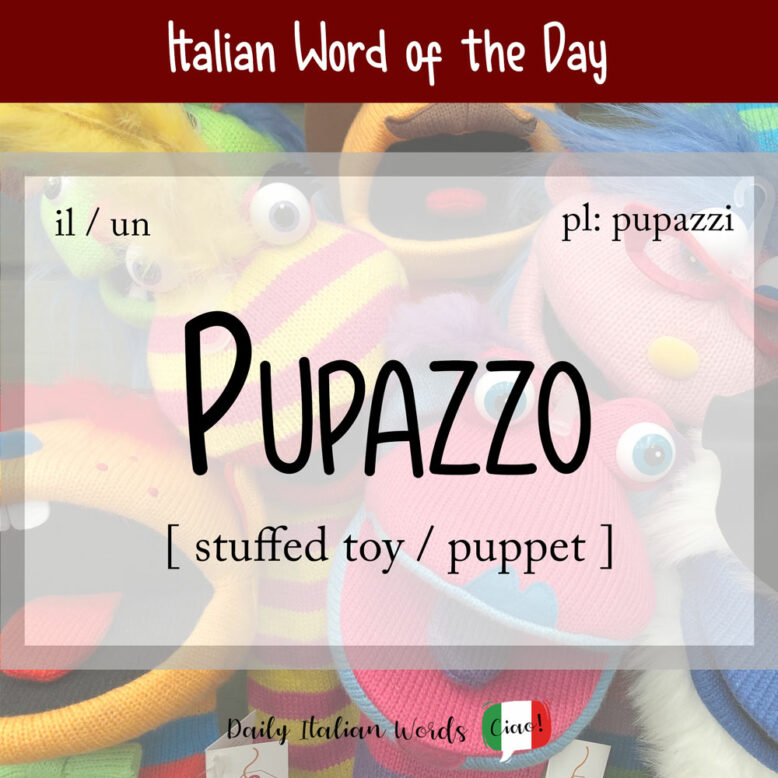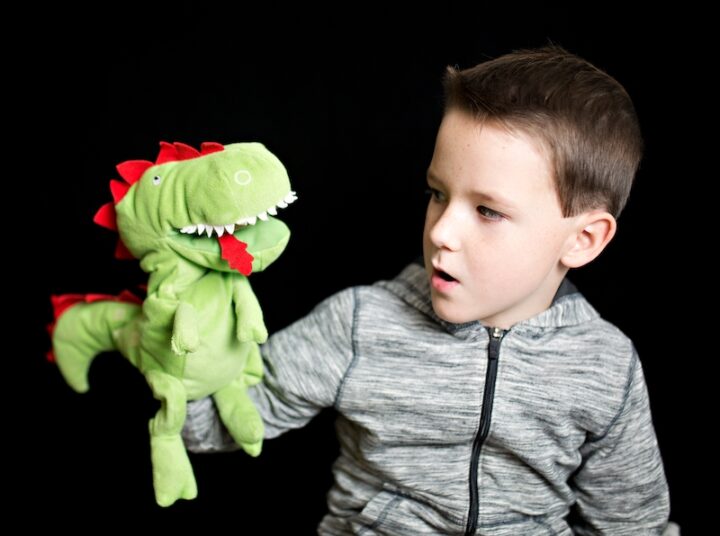Pupazzo (masculine, plural: pupazzi) is the Italian word for any model or toy that represents the form of a person or animal. Puppet is just one possible translation but stuffed toys, dummies, figurines, and dolls may also be classified as pupazzi.

The word is a combination of the term pupo (another word for puppet and, in some regions, an informal word for child) and the derivational suffix -azzo.
I suoi genitori gli hanno regalato un pupazzo per Natale.
His parents gave him a stuffed toy for Christmas.
To avoid ambiguity, you can specify which kind of pupazzo you are talking about by describing the material from which it is made. For example, a pupazzo di gomma (rubber) would be a figurine whereas a pupazzo di stoffa (cloth) is a stuffed animal or plush puppet.

The diminutive pupazzetto is often used when talking specifically about children’s toys. Pupazzetto can also refer to an action figure.
Below are some specific names for different kinds of pupazzi:
- bambola = doll
- marionetta = marionette
- peluche = stuffed animal (the word comes from French and is pronounced pe-loosh)
- orsacchiotto = teddy bear
- burattino = wooden puppet
- fantoccio = scarecrow, effigy
A pupazzo di neve (literally a ‘puppet of snow‘) is what Italians call a snowman.
La prossima settimana nevicherà. Non vedo l’ora di andare fuori a fare un pupazzo di neve!
Next week it will snow. I can’t wait to go out and make a snowman.
Figuratively speaking, pupazzo is a nickname for someone who is weak, fickle and lacks decisiveness.
Heather Broster is a graduate with honours in linguistics from the University of Western Ontario. She is an aspiring polyglot, proficient in English and Italian, as well as Japanese, Welsh, and French to varying degrees of fluency. Originally from Toronto, Heather has resided in various countries, notably Italy for a period of six years. Her primary focus lies in the fields of language acquisition, education, and bilingual instruction.


